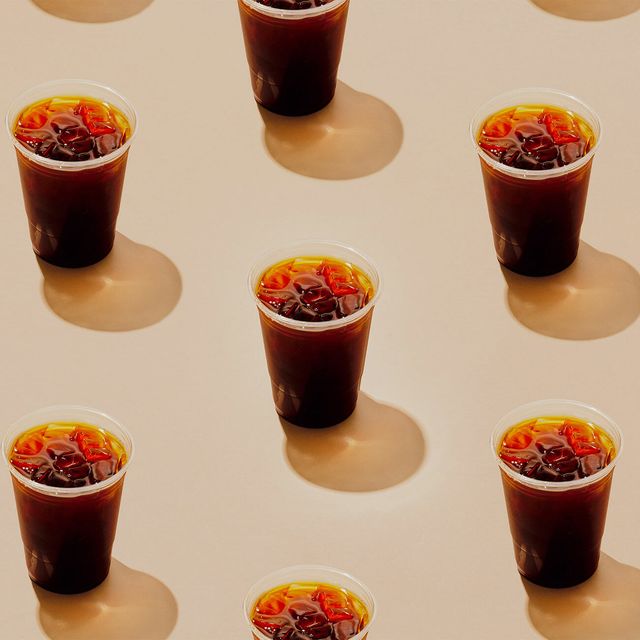Welcome to Counterpoint, a series in which we challenge commonly held ideas about well-known products. This time: cold-brew coffee. (This story was originally reported in 2019.)
George Howell, specialty coffee’s patron saint and owner-operator of the Boston-based roastery that bears his name, really wishes you’d order iced coffee — or anything, really — instead of cold brew. “If you’re into the flavors of coffee, you’re not into cold brew. It’s as simple as that,” Howell says.
Cold brew is made by mixing coffee grounds and water, letting them mingle at room temperature for 12 to 24 hours and running the resulting concentrate through a filter. Iced coffee, meanwhile, is made using normal hot coffee brewing methods and, in one way or another, chilled.
Coffee writer, Youtuber and former World Barista Champion James Hoffmann echoes Howell’s sentiment. He describes the flavors of cold brew, which are developed over a longer brew process without the use of hot water, as oxidized or “off.”
“Hot water is really important to extracting all of the soluble flavor compounds in coffee,” Hoffmann says. “When you brew with cold water you tend to get a more generic, coffee-like set of flavors out of the coffee. Brewing with cold water makes it harder to tell by taste where a coffee might have been grown.”
To coffee professionals like Howell and Hoffmann, cold brew doesn’t do good beans justice. It leeches them of lighter aromatic flavors and results in what Howells calls a “one-noted, samey” beverage. But not every member of coffee’s third-wave cognoscenti shares his position.
“For coffee pros, it’s easy to hone in on a quality, assess it as a defect and treat it as a binary,” says Charles BabinskiGo Get ‘Em Tiger in LA. “Cold brew is a flavor — there are qualities that are lost and there are aspects of flavor that are specific to cold brew.”
Babinski accepts that cold brewed coffee won’t highlight more delicate notes in coffee, but thinks to dismiss it wholesale is shortsighted. “[Cold brew] represents an enormous success for specialty coffee, that much we can agree on,” he says, “you can still tweak your recipes, and you can certainly extract flavors beyond chocolates and sweetness.” At home, people can cut back on the brew time — from 24 to, say, eight hours — for a lighter and slightly more acidic cold brew.
Ultimately, Babinksi says the debate surrounding cold brew and iced coffee reminds him of the clichéd barista looking down on someone for wanting a latté. “It’s really cool that cold brew has given more people a reason to drink better coffee, he says. “It’s given people a jumping off point for specialty coffee when they might have otherwise walked right by.”


















